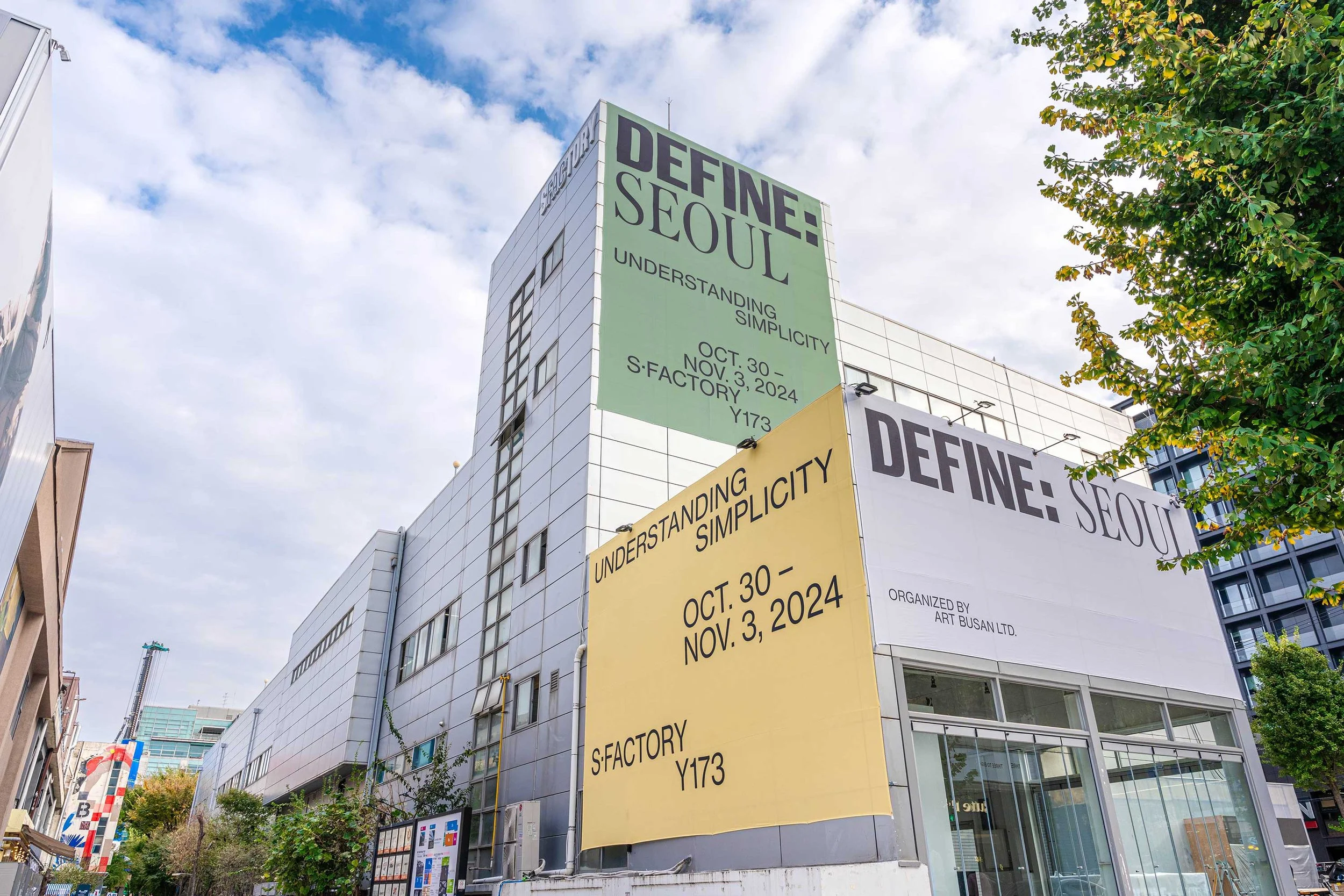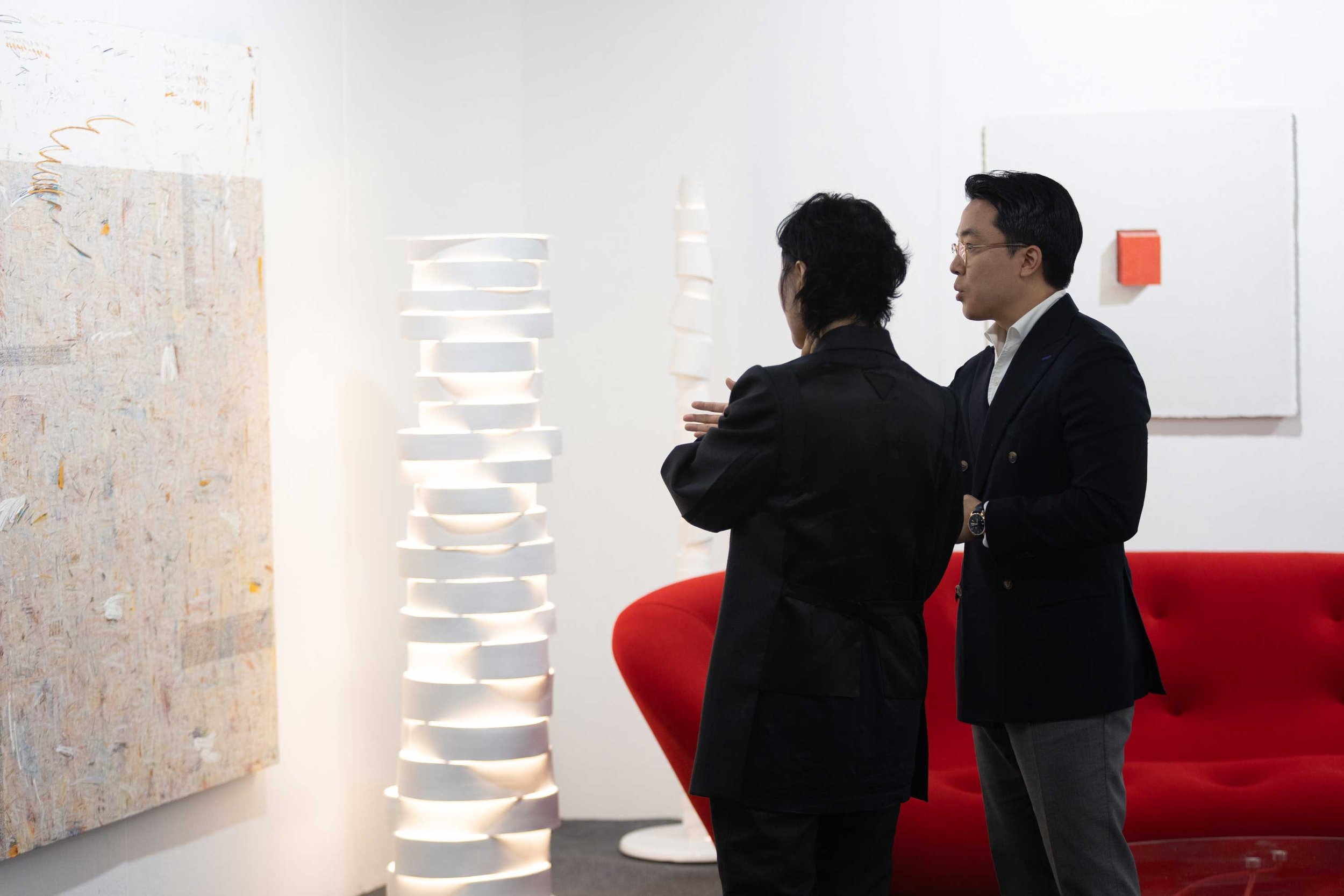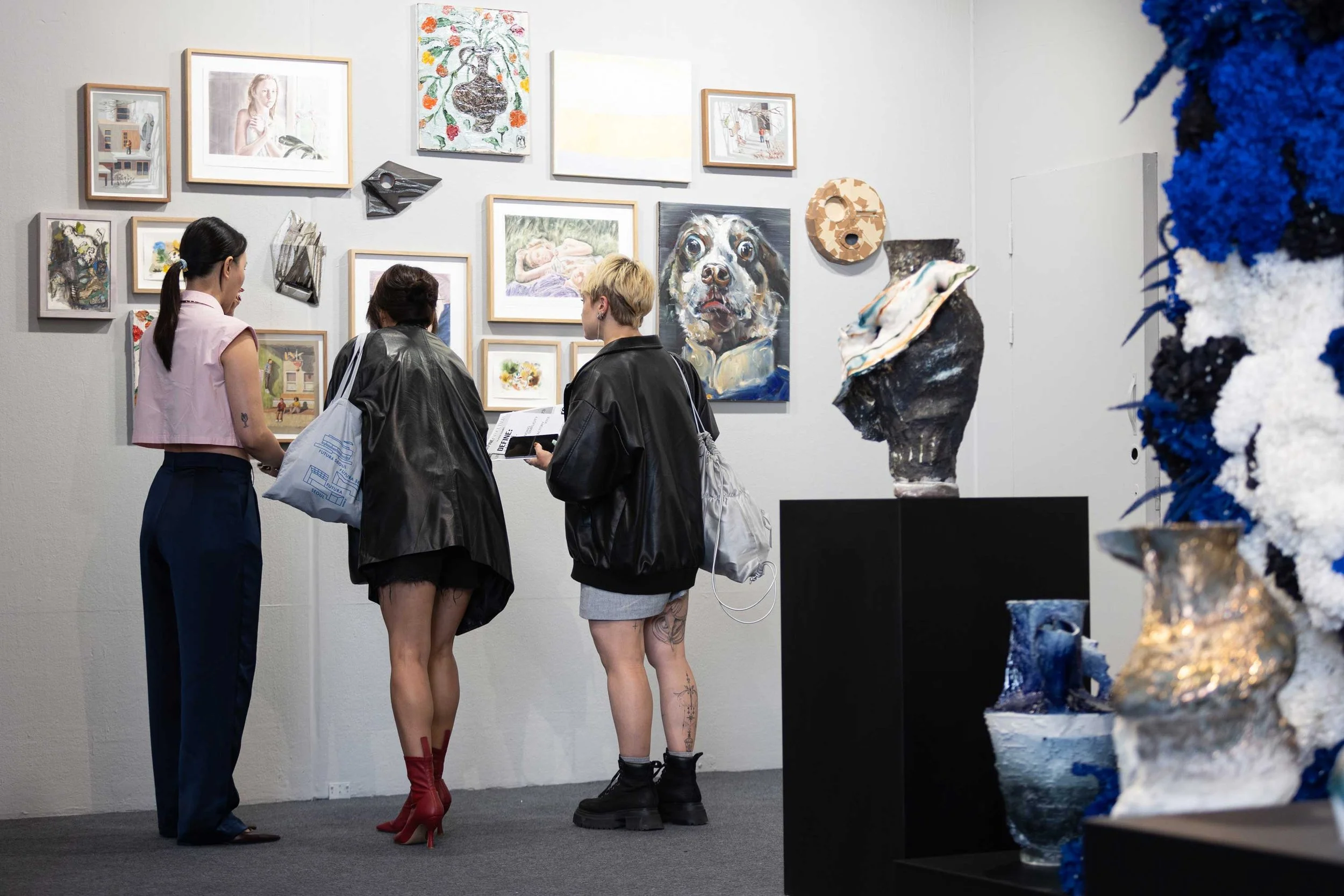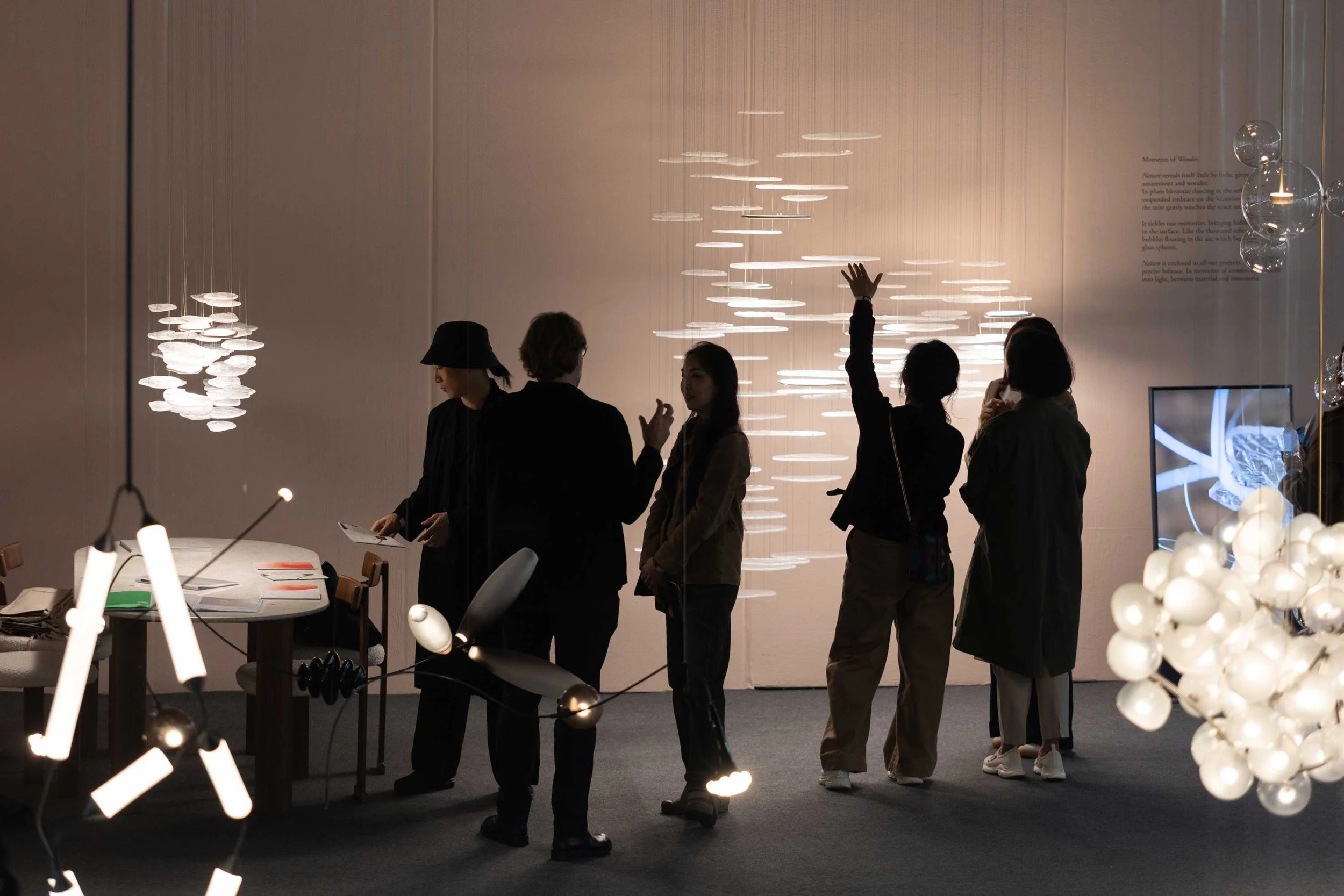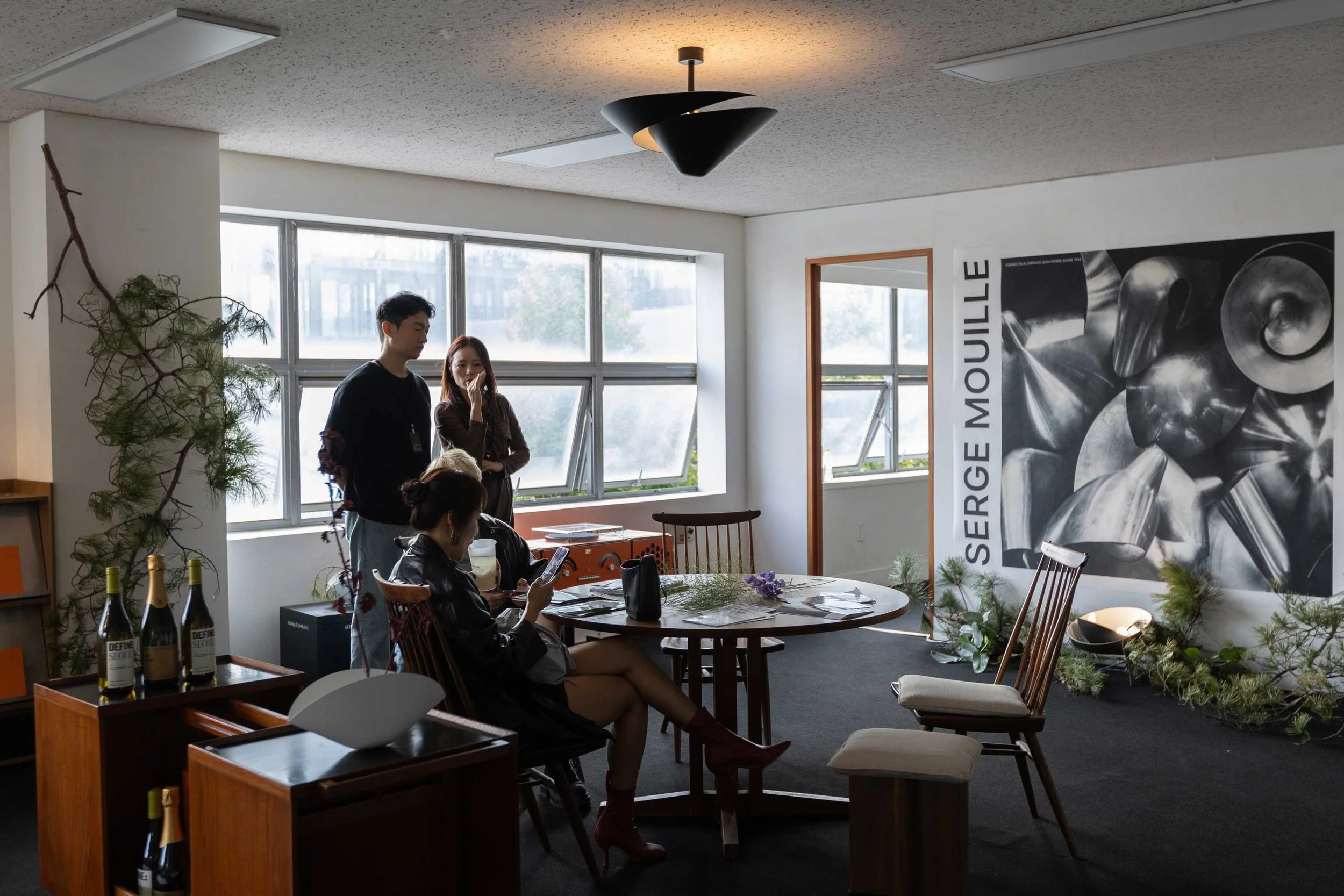Define Seoul Returns for a Second Outing
Five-day Korean design event Define Seoul sits alongside its well-established art fair counterparts, adding a new dimension to the nation’s ever-increasing cultural capital
In Seoul’s Seongsu neighbourhood, car repair shops and light industry operate next to bakeries, bars and bistros marked by dozens-deep queues that spill onto the chaotic, energetic streets. It’s in this pocket of urban regeneration that Define Seoul, Art Busan’s younger, cooler sibling, has made its home. Bringing together art galleries, design studios and a burgeoning collectible design market, the compact but diverse fair offers an overview of the city’s maturing creative industries and the patrons who support it.
‘We wanted to do something interesting and different and fun, to give inspiration and to make it easy for visitors to approach, whether they’re new collectors or whether they’re already art collectors,’ says Seokho Brian Jeong, managing director of Define Seoul and Art Busan. Jeong is a second-generation fair founder, following in the footsteps of his mother Young Hee Sohn, who launched Art Busan in 2012. For Jeong, finding a location that allowed visitors to engage with the wider city was important, as he hopes to build Define Seoul into a hub event that spreads out into and activates the surrounding Seongsu streets. ‘I used to live in Berlin, and there, what’s famous is Gallery Weekend, with the concept of touring around the city. We wanted to implement that here in Seoul,’ he says.
In creating Define Seoul, Jeong sought to diversify the offering available to art collectors and to help mitigate against an over-saturation of art fairs in the region. ‘We all say there are too many fairs, and we have the common feeling that there is an overwhelmingness to art fairs, because non-art related brands or companies are all trying to implement and use art,’ he explains. ‘It seems overwhelming because it’s everywhere now for the collectors who are invited to these events. It means we need to find alternative solutions and ways to adapt to this new situation.’
To help realise this vision, Seoul-based designer Teo Yang was brought on as Define Seoul’s artistic director from the first edition. Under Yang’s guidance, this year’s programme of talks, installations and exhibitions was mapped out. A special exhibition, Feature, presented immersive, large-scale exhibitions by rising talents and more established names, including Switzerland-based Atelier Oï and Seoul-based Jihoon Ha, Tae Soo Lee and Deok Han Kim. The Define Selection programme highlighted the work of three Korean designers: Dan Kim, Seong-il Choi and Wknd Lab, all chosen by Yang. The programming falls under a theme of ‘understanding simplicity’, with the organisers inviting visitors to ‘explore the concept of simplicity as a rational and essential value’.
The five-day fair included booths from 45 exhibitors, presenting a pleasing mix of design, art and craft, with vintage European pieces from the likes of Charlotte Perriand neighbouring contemporary works by Korean artists such as Jaehun Park. Exhibitors include Bangkok-based Yoomoota and Milanese design studio Giopato & Coombes, along with galleries that have an existing presence in the Korean capital such as Whitestone Gallery and Wooson Gallery. Seoul-based Roy Gallery presented a pair of oak cabinets produced by Korean furniture maker Standard A, covered in lacquered panels by Gang Yong Park, a striking depiction of tradition meeting modernity and an exemplar of how the nation’s craft, design and production industries come together.
The fair’s annex venue Y173, meanwhile, hosted Korean artist Jihoon Ha’s immersive collaboration, Re:form Plastic-Ground, which asked its audience to rethink the use of plastic. The installation consisted of a sea of mountain-shaped plastic seats and jari stools, traditional tables designed for social gatherings.
Korean culture needs little introduction to global audiences: the nation’s music, film and art exports are renowned. Yet it’s the design industry, built on a history of craft and production, that is emerging as one of the country’s most exciting sources of creative growth. And for that to continue, the international market will need to pay attention to events like Define Seoul. Alongside its commercial offering, the ambitious undertaking is helping to bring an accomplished design scene the exposure it’s long deserved.
Text by Jeremy Smart
Images courtesy of Define Seoul

